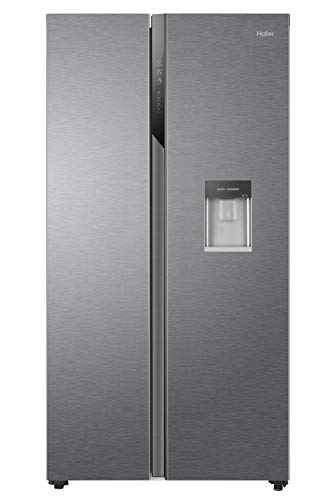The Comprehensive Guide to Refrigerators: Types, Features, and Maintenance
Fridges, commonly described as fridges, play a critical role in modern-day households by protecting food, minimizing waste, and maintaining a comfortable living environment. These essential kitchen appliances have evolved substantially throughout the years in terms of innovation, effectiveness, and design. This short article aims to provide a thorough summary of the numerous types of fridges, their functions, and ideas for maintenance, making it a vital resource for house owners.
Types of Refrigerators
Refrigerators can be found in numerous designs and setups, each accommodating different needs and choices. Below is a summary of the most common kinds of refrigerators available on the market today.
| Type of Refrigerator | Description |
|---|---|
| Top-Freezer | This is the traditional fridge style where the freezer compartment is found on top. It is usually the most budget-friendly choice, making it popular for budget-conscious consumers. |
| Bottom-Freezer | In this design, the freezer is located at the bottom, enabling easy access to fresh items at eye level. This type typically features pull-out drawers for easier company. |
| Side-by-Side | This design has the freezer and refrigerator compartments set up vertically next to each other. It offers easy access to both areas and frequently features water and ice dispensers. |
| French Door | Combining the benefits of a bottom-freezer design with broad doors on the refrigerator section, French door fridges provide ample space and versatility, making them ideal for big families. |
| Compact | Also called mini-fridges, these smaller units are best for dormitory, workplaces, or as secondary fridges in homes. They have actually restricted storage however are energy-efficient. |
| Smart Refrigerators | Geared up with smart innovation, these fridges use functions such as touch screens, internet connectivity, and app controls. They can supply notices for expired food and other smart performances. |
Secret Features to Consider
When selecting a refrigerator, it is vital to think about different functions that can improve use and performance. Here are some key features to look for:
Energy Efficiency
- Look for models with an Energy Star ranking to make sure energy effectiveness and minimized energy costs.
Storage Options
- Adjustable shelves, door bins, and specific compartments for vegetables and fruits improve the versatility of storage.
Water and Ice Dispensers
- Many side-by-side and French door designs include built-in water and ice dispensers, supplying benefit and motivating hydration.
Temperature Control
- Exact temperature level control allows property owners to set optimum conditions for various food items.
Smart Features
- Features like touchscreen interfaces, Wi-Fi connectivity, and built-in cameras to help manage grocery inventories make wise fridges attractive.
Sound Levels
- Consider models with low operational sound, specifically if the kitchen is open to the living location.
Upkeep Tips for Refrigerators
Proper upkeep can extend the life of a refrigerator and make sure optimal efficiency. Here are some helpful maintenance ideas:
Regular Cleaning:
- Clean the exterior and interior surface areas of the fridge with moderate soap and water at least once a month.
- Get rid of spills instantly to prevent smells and germs development.
Temperature level Settings:
- Maintain your refrigerator at a temperature in between 35 ° F to 38 ° F and the freezer at 0 ° F for optimum food conservation.
Check Door Seals:
- Inspect the door seals periodically for fractures or tears. A defective seal can cause energy loss and increased electrical power costs.
Defrost Regularly:
- For manual defrost designs, thaw the freezer when ice develops to reduce the device's workload.
Condenser Coils:
- Clean the condenser coils at the back or below the refrigerator every six months to improve effectiveness.
Keep it Level:
- Ensure the refrigerator is level for proper door alignment and to avoid vibrations.
Regularly Asked Questions (FAQs)
1. For how long should a refrigerator last?Usually, a refrigerator can last anywhere from 10 to 20 years, depending upon the brand name and upkeep practices.
2. How can Jodie Finegan enhance the energy efficiency of my refrigerator?To boost energy efficiency, keep the fridge's temperature level settings ideal, routinely tidy the condenser coils, and avoid positioning hot food inside.
3. What type of refrigerator is best for small kitchens?Compact or counter-depth models are ideal for little kitchen areas as they supply ample storage without inhabiting too much space.
4. Are smart fridges worth the financial investment?Smart refrigerators can be worth the financial investment if you value convenience and innovation. They provide functionalities like stock management and remote access, which cater to tech-savvy users.
5. How can I fix a refrigerator that is not cooling effectively?Start by checking the temperature level settings, ensuring the condenser coils are clean, and verifying that the door seals are undamaged. If these do not resolve the issue, consider calling a professional specialist.
In conclusion, fridges are essential home appliances that play a vital role in maintaining food and keeping a healthy way of life. With a variety of types and functions readily available, it is important for customers to pick a design that aligns with their particular needs. By understanding the options and adhering to maintenance best practices, homeowners can delight in the advantages of their refrigerators for several years to come.

